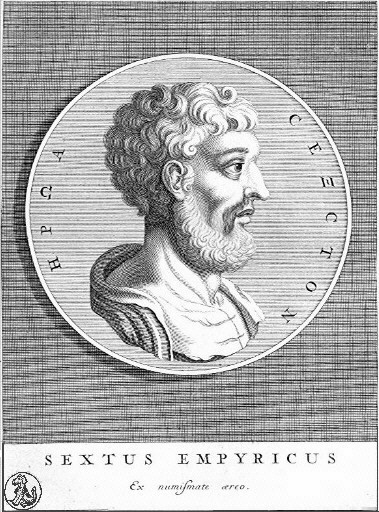
Wang Meng at the Frankfurt Book Fair, 2009. Looks like his voice is still projecting! (From wikipedia)
Scoggin, Mary. Ethnography of a Chinese Essay: Zawen in Contemporary China. Dissertation: University of Chicago, 1997.
One way to take great heart for one’s dissertation-in-progress is to consider what successful dissertations have done before. After reading Mary Scoggin’s chapter profiling how three different writers use zawen to make political statements, I realize that a dissertation chapter can be short, can leave stories unfinished, and will most likely have parts that are confused and need reworking still. Further, literary considerations seem completely pushed to the side: Scoggin’s writing is often inelegant. And why shouldn’t it be? As an anthropologist, she takes her work more as a report than as a literary project.
Chapter 6: Zawen and Ideology.
Chapter six begins with one example of a parable that is often used for political criticism:
Confucius was traveling through the Tai mountains when he came upon a woman weeping at a tomb. He had his disciple ask her why she wept so bitterly. She said that in the past her father, husband and now her son had all been killed by a tiger. Confucius asked her why she did not leave this place. She replied, “because there is no harsh government here.” Confucius turned to his disciples, “We can see from this, harsh government is more ferocious than a tiger.”Zawen writers like Liu Jia, Lan Ling, and Wang Meng all manipulate a system of such literary allusions to express social and political content with varying degrees of irony. When we observe closely how these writers work, we can see that all along China’s newspapers and literary journals have been places for them to participate in just the kind of political critique that seekers of civil society in China have called for:
In a typical contemporary Chinese scenario, when a part-time free-lance writer composes and essay and sends it to the literary department at a major paper, the writer is ordinary, while the literary editor is “official.” Then, when the editor submits the essay to her boss, the chief editor, for approval to print it, she is an ordinary office worker, while the chief editor is the “official.” Then again, when the Provincial Committee member picks up the paper just to read it like any other ordinary reader, and sees that an incendiary essay has been published by a writer who also happens to be, or have ties to, a rival in government...as we come full circle we may have outlined a significant political event....The practice of writing and publishing intentionally provocative zawen operates as effective social criticism and a builder of moral communion--”friends” -- and rivalry -- “enemies” -- in newspapers and journals: precisely that public sphere where social analysts often look for “civil society.”
Following, she gives three brief profiles of such writers and the circles of friends and enemies they create.
Liu Jia took over the editorship of the “literary supplement” to the People’s Daily from Lan Ling at the beginning of the “Anti-Rightist Campaign” in 1957. This leftist ideologue carried forward the highly ideological, non-artistic mode of zawen writing that dates to Lu Xun, Mao’s 1942 “Talks,” and Liu Jia’s own theoretical essays from the 1950s, 60s and 70s. During the 1980s, in his retirement, he helped establish a community of leftist zawen writers to advocate for essays in a “New Tone,” “the tone of people who have turned themselves around and taken the power of their own role as masters (Liu Jia 1987: 2)” The main characteristic of this “New Tone” is what Scoggin calls “a base-line emotional state” (236, Scoggin reminds us that music and emotions are deeply connected in traditional Chinese aesthetics); this emotion is one of restraint: do what you can, don’t criticize too much.
Lan Ling actually started the “literary supplement” to the People’s Daily in 1956, during the “Hundred Flowers” campaign; he fell victim to the “Anti-Rightist Campaign” in 1957. Also influenced by Lu Xun’s zawen, Lan Ling favored earnestly critical pieces, such as one of his own against a Qingdao City nursery school that sheltered the children elite officials (243). “The task of zawen, according to Lan Ling, is not to conduct investigative reporting, but rather to reflexively respond to the normal affairs that anyone may encounter in daily life.” After his years of suffering and exile, he emerged in the 1980s to attack “ultra-left” politics, tracking their intensity against the cycle of flowering and withering of zawen publication: his point is clearly that a critical public sphere depends on diverse and sociable zawen production. Unlike Liu Jia, Lan Ling believes that zawen are properly literature, not simply “mules” for politics, though political content is very important.
Wang Meng’s few 1980s zawen reveal an ambitious, even cocky, craftsman of insinuation; Scoggin seems to observe his work only very briefly so that she can establish the great emotional range inhering in the term “tone.” In recent years, the more diverse set of approaches favored by Lan Ling and his followers (and which Scoggin calls “Lu Xun-style zawen) has gained more popularity than Lu Jia’s “new tone” idea.
These profiles are all of ambitious, major political participants; one wants to contrast this with the deliberately reserved Yang Jiang. Can Za yi yu za xie be considered zawen? It is short, impressionistic writing. It does contain literary allusions. It often takes the form of portraits -- I really wonder to what extent Lu Xun, Liu Jia, Lan Ling, Wang Meng, Deng Tuo and Wu Han wrote portrait-style zawen that I might compare to, say, “Granny Lin” or “Lucky and Nimble.” As for political content, we may heed Scoggins warning that “We may look at a sample of social criticism and not see it,” often because of its dense literary qualities.
Read more...












